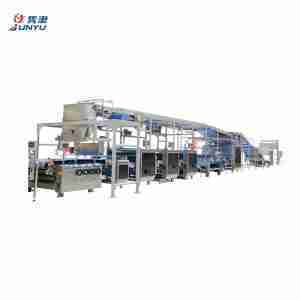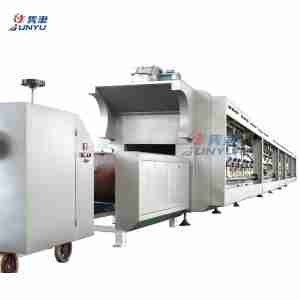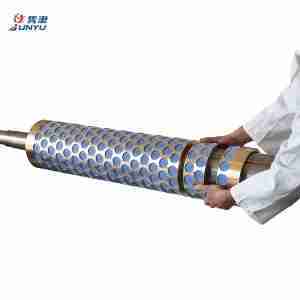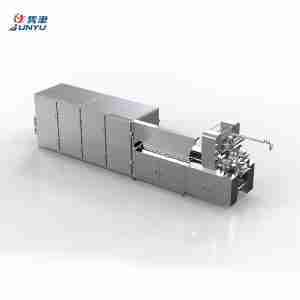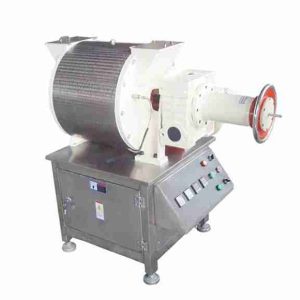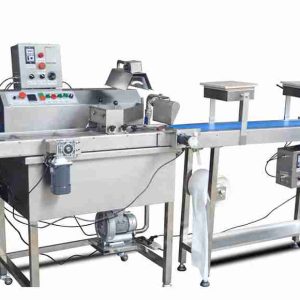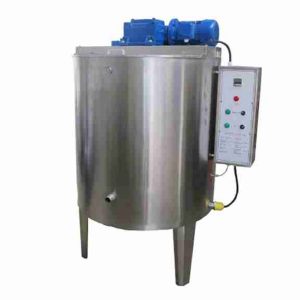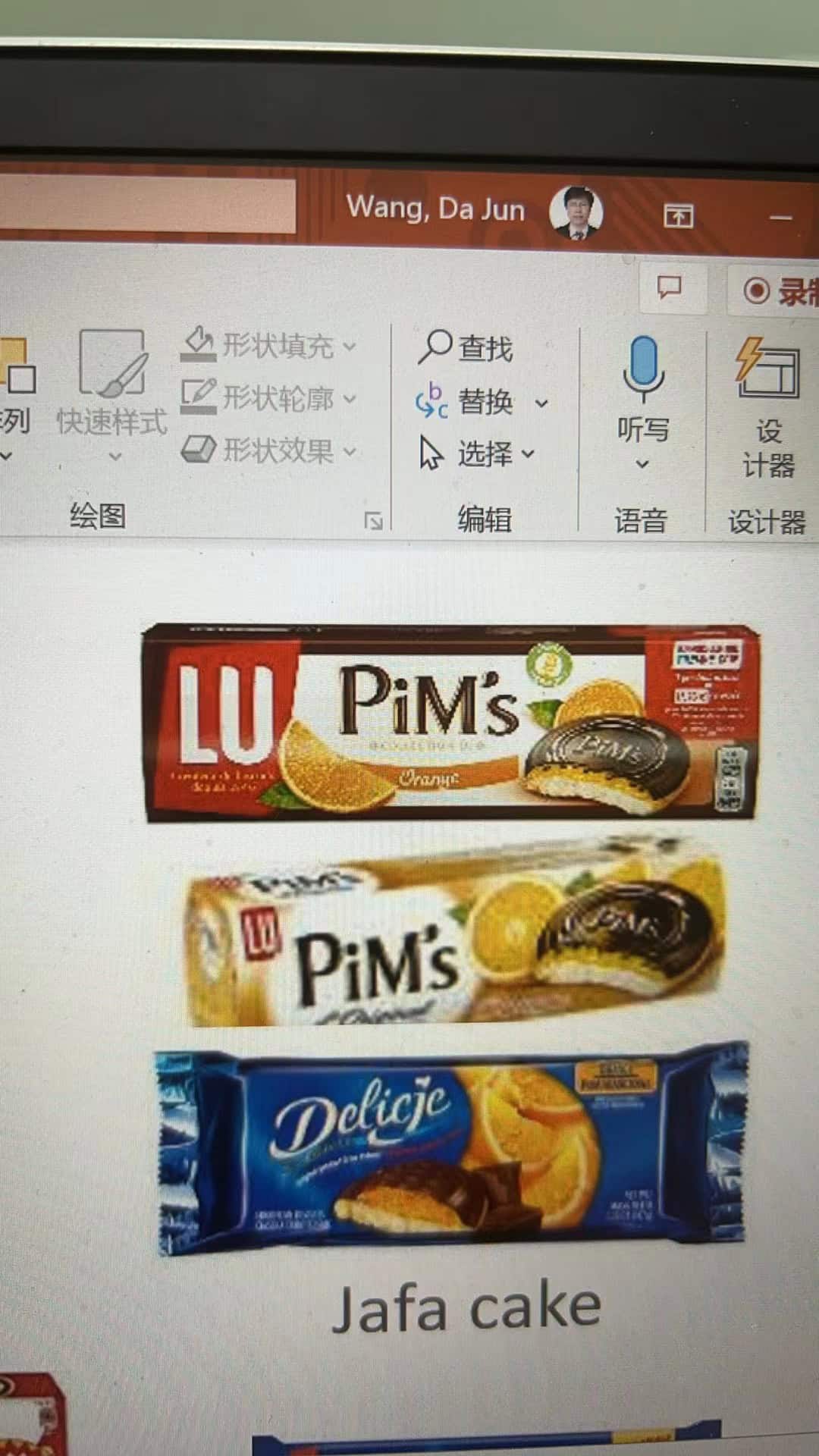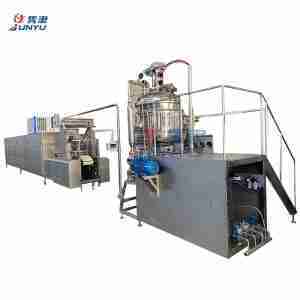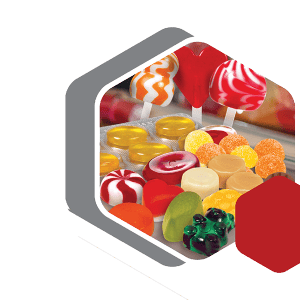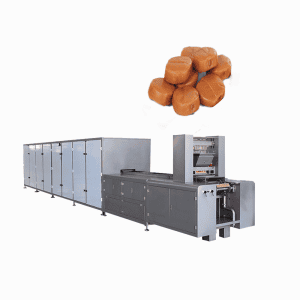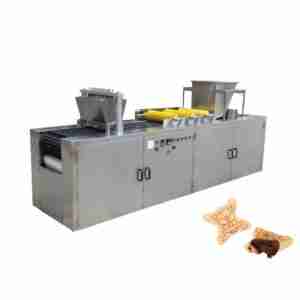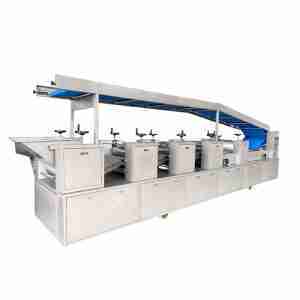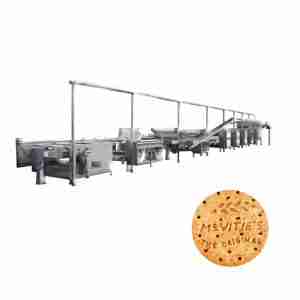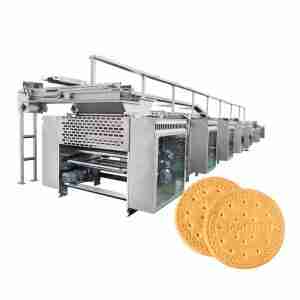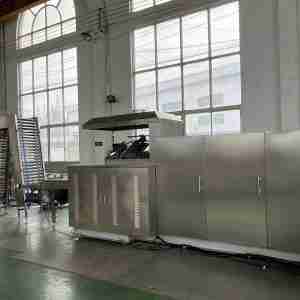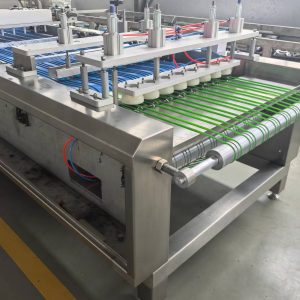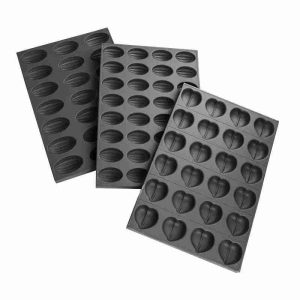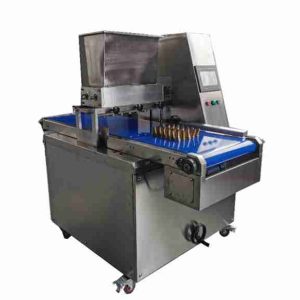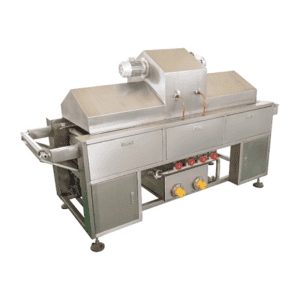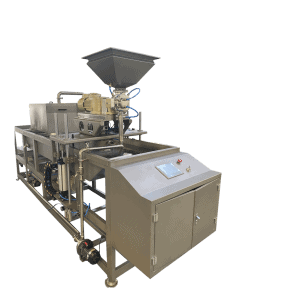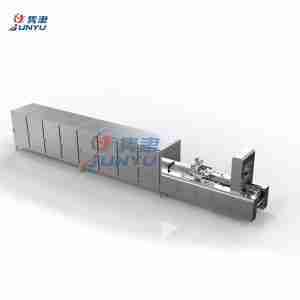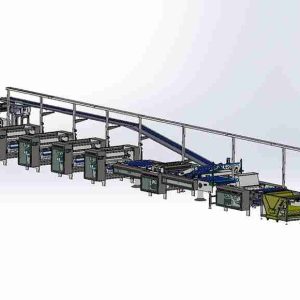Última atualização em 24 de maio de 2024 por jymachinetech
Did you know that the average bar of chocolate has about 20 different ingredients?
Did you know that there are over 1,000 different types of chocolate in the world?
Did you know how hard it is to make chocolate?
Indeed, producing all those yummy bars and blocks requires a lot of work.
Unfortunately, most people don’t get to see how their beloved chocolate is made.
It’s not exactly something that factories want to advertise, after all.
No entanto, estamos aqui para contar o que acontece a portas fechadas ao fazer chocolate.
Do feijão à barra, estes são alguns detalhes interessantes sobre como o seu doce favorito é feito.
What is chocolate?
Before we look at how it’s made, it makes sense to know what chocolate is.
Chocolate is a food made from roasted cocoa beans.
The beans are the seeds of Theobroma cacao, a tropical tree.

Usually, we’re talking about dark chocolate, milk chocolate, or white chocolate. Dark chocolate has the highest amount of cocoa, while white chocolate has the least.
The difference is in the amount of fat.
There are many different types of chocolate.
For example, there’s iced chocolate, boxed chocolate, chocolate crinkle cookies, chocolate-covered almonds, chocolate chip cookies, and hot chocolate.
For the rest of this article, we’ll be talking about dark chocolate. It’s the most well-known type of chocolate, after all.
Roasting
Dark chocolate is made from roasted cocoa beans.
The beans are roasted in large batches.

The roasting process takes a few hours, so the beans are usually roasted at night.
Roasted beans are a combination of cocoa beans, cocoa butter, and cocoa solids.
The beans are then crushed and ground.
The crushed cocoa beans are put through a process called winnowing.
Hot air helps to separate the cocoa solids from the cocoa butter.
It takes a few hours to finish this process.
winnowing
When the roasted beans are separated from the cocoa butter, what’s left is called cocoa nibs. What happens next is called winnowing.

A large metal wheel spins in a tub of cocoa nibs.
This separates the nibs from the cocoa shells.
The nibs are then ground into a powder.
The cocoa powder is mixed with sugar and other ingredients, like milk and lecithin.
Mistura
The next step is mixing.
There are two types of mixing methods: drum roasters and continuous roasters.
Drum roasters are large rotating drums that mix the ingredients.

Continuous roasters are long, tube-shaped chocolate machines that mix the ingredients.
Drum roasters usually use natural, or non-man-made, cocoa.
Continuous roasters usually use man-made cocoa.
Both methods mix the ingredients by heating them to a certain temperature.
This makes them easier to combine and allows them to mix thoroughly.
Molding
We’re almost there! The next step is to mold the ingredients into blocks.
These blocks are called slabs.
The slabs are then cooled down.
When they’re at the right temperature, they’re put into a press.

Cacau em pó
The press crushes the ingredients together to form a block.
During the cooling process, the cocoa powder is mixed with lecithin with a chocolate molding machine.
This is a fatty substance that allows the chocolate to melt correctly.
It also helps the chocolate to be more malleable.
Revenimento
Tempering is an important part of the chocolate-making process.
It consists of reheating the chocolate to a certain temperature.
While the chocolate is warm, it’s mixed with other ingredients.

Different types of chocolate.
This helps the chocolate to form a glossy finish when it cools down.
Tempering is important because it gives the chocolate its distinct appearance.
Without tempering, chocolate would have a dull and crumbly texture.
Concha
Conching is a process that molds the ingredients together.
It also grinds the ingredients together to create a smooth texture.
Conching takes place in a machine called a concher.

This machine is usually round and has a rotating bowl.
Conching usually takes at least 24 hours.
After the ingredients have been conched, the chocolate is ready to be molded into bars and blocks.
Wrapping up
Finally, the chocolate is ready to be wrapped up and put on store shelves! It’s been a long journey from roasted cocoa beans to yummy chocolate bars.
A lot of hard work goes into making delicious chocolate.
The process is long and requires a lot of patience. With a little luck, we’ll be able to enjoy the fruits of our labor in no time!
Porque escolher-nos?
A Shanghai Junyu começou como fabricante de equipamentos alimentícios, especializada em diversos tipos de máquinas para a indústria alimentícia. Nossa linha inclui máquinas para fazer biscoitos, máquinas para fazer doces, máquinas para fazer chocolate, máquinas para fazer wafers, máquinas para fazer bolos, máquinas de embalagem e muito mais. Com o compromisso com a qualidade e a inovação, nos esforçamos para fornecer equipamentos de primeira linha para atender às diversas necessidades de nossos clientes no setor de fabricação de alimentos.
Gama diversificada de produtos: A Junyu oferece uma ampla variedade de equipamentos para alimentos, incluindo máquinas para fazer biscoitos, máquinas para fazer doces, máquinas para fazer chocolate e muito mais, atendendo a diversas necessidades da indústria alimentícia.
Máquinas de alta qualidade: A Junyu tem o compromisso de produzir equipamentos de alta qualidade, garantindo durabilidade, confiabilidade e eficiência nos processos de produção de alimentos.
Tecnologia inovadora: Com foco na inovação, a Junyu integra tecnologia avançada em suas máquinas, melhorando o desempenho e a produtividade de seus clientes.
Opções de personalização: A Junyu oferece opções de personalização para adequar as máquinas de acordo com as necessidades específicas do cliente, garantindo que cada máquina atenda às necessidades exclusivas de seus usuários.
Conhecimento e Experiência: Com anos de experiência na indústria, a Junyu desenvolveu experiência na fabricação de equipamentos para alimentos, oferecendo aos clientes produtos confiáveis apoiados pelo conhecimento da indústria.
Alcance global: A Junyu tem presença global, atendendo clientes em todo o mundo e fornecendo suporte e serviços sempre que necessário.
